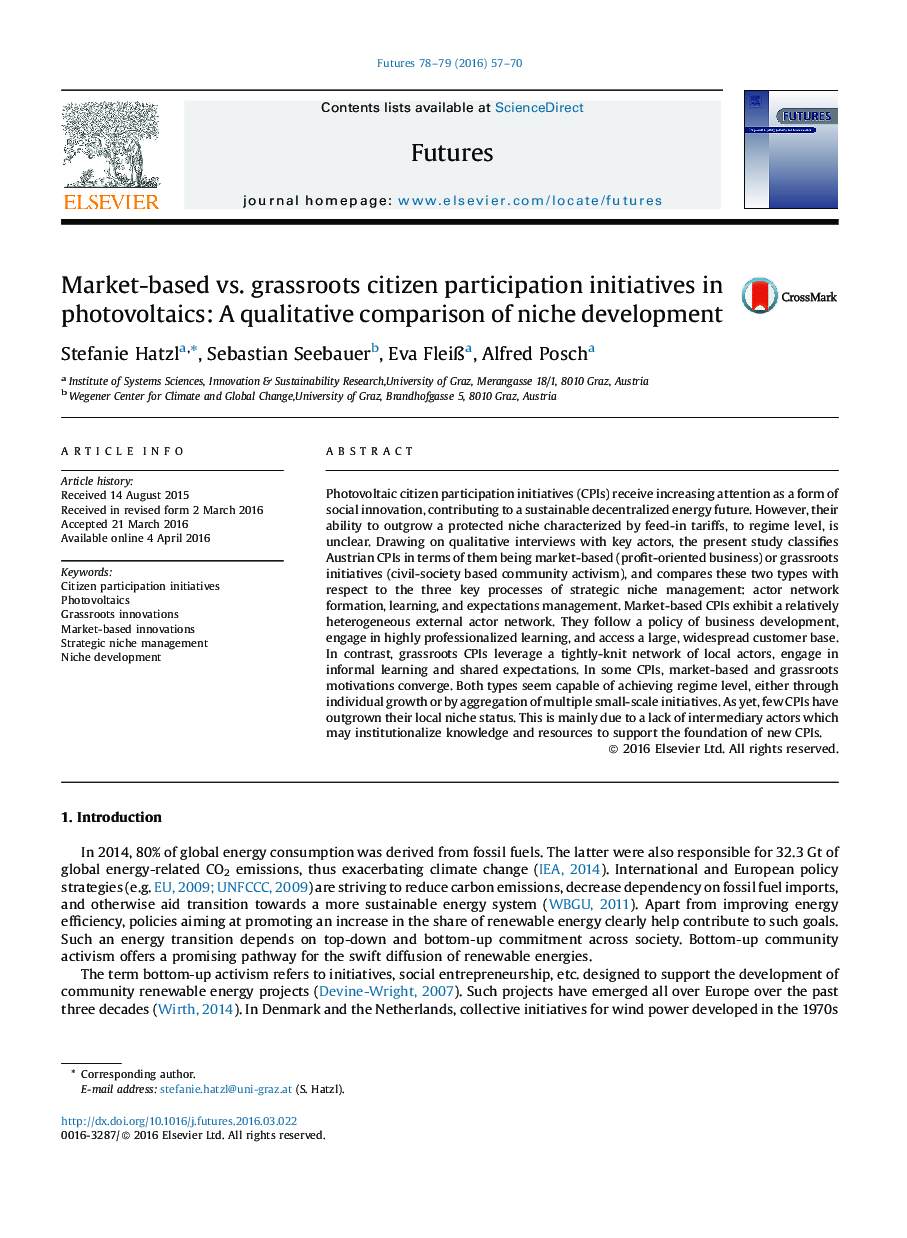| Article ID | Journal | Published Year | Pages | File Type |
|---|---|---|---|---|
| 7423990 | Futures | 2016 | 14 Pages |
Abstract
Photovoltaic citizen participation initiatives (CPIs) receive increasing attention as a form of social innovation, contributing to a sustainable decentralized energy future. However, their ability to outgrow a protected niche characterized by feed-in tariffs, to regime level, is unclear. Drawing on qualitative interviews with key actors, the present study classifies Austrian CPIs in terms of them being market-based (profit-oriented business) or grassroots initiatives (civil-society based community activism), and compares these two types with respect to the three key processes of strategic niche management: actor network formation, learning, and expectations management. Market-based CPIs exhibit a relatively heterogeneous external actor network. They follow a policy of business development, engage in highly professionalized learning, and access a large, widespread customer base. In contrast, grassroots CPIs leverage a tightly-knit network of local actors, engage in informal learning and shared expectations. In some CPIs, market-based and grassroots motivations converge. Both types seem capable of achieving regime level, either through individual growth or by aggregation of multiple small-scale initiatives. As yet, few CPIs have outgrown their local niche status. This is mainly due to a lack of intermediary actors which may institutionalize knowledge and resources to support the foundation of new CPIs.
Related Topics
Social Sciences and Humanities
Business, Management and Accounting
Business and International Management
Authors
Stefanie Hatzl, Sebastian Seebauer, Eva FleiÃ, Alfred Posch,
